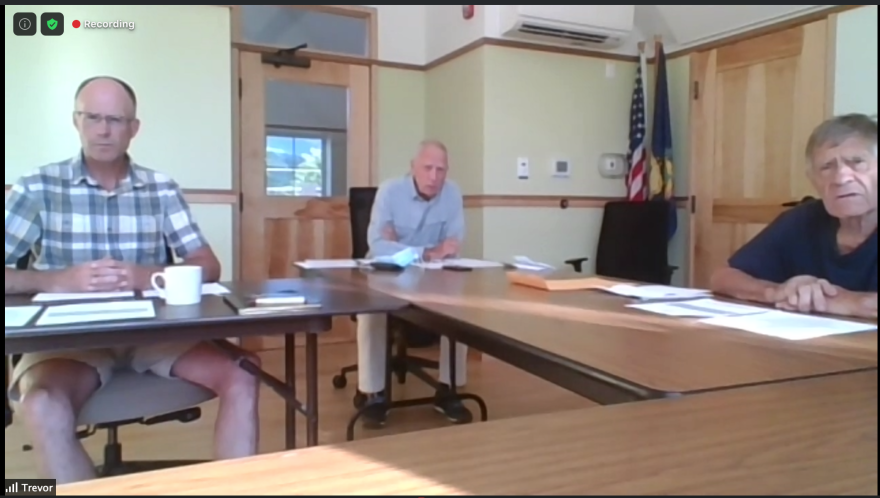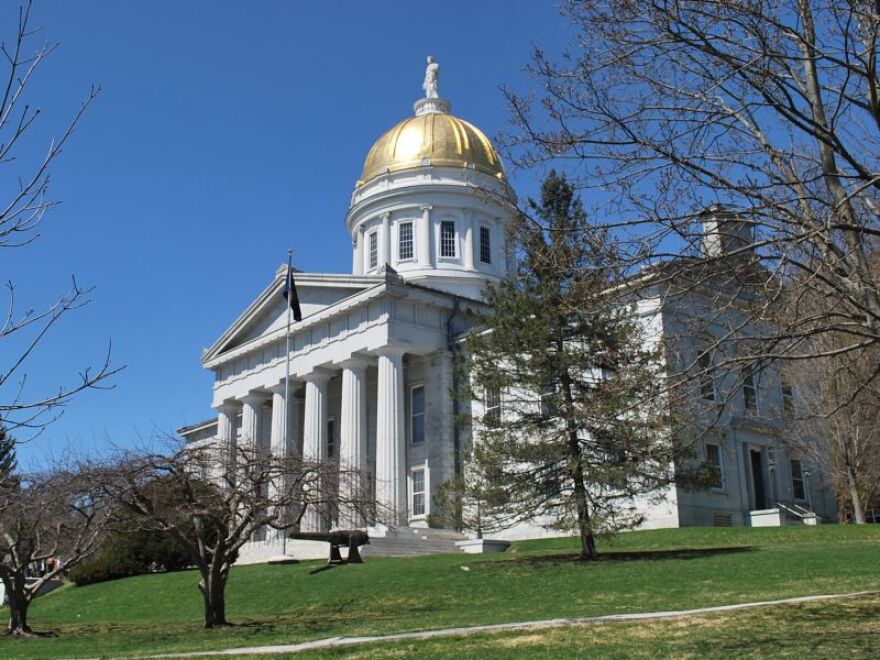When the COVID-19 pandemic hit, lawmakers had to figure out how to allow select boards and school boards to meet safely.
Before the pandemic, Vermont’s Open Meeting Law was clear — boards had to meet in a physical room and allow the public access to whatever business was being discussed in open session.
But as COVID-19 began spreading across Vermont lawmakers were forced to put together a new law that allowed boards to meet remotely, and not have to designate a physical space as Vermont towns have traditionally done.
The new law, which was extended twice since the emergency measure was first contemplated during the early days of the pandemic, is set to expire at the end of June.
So, lawmakers are now trying to figure out what to do about the open meeting law, weighing the advantages of remote hybrid meetings, that make the meeting much more accessible for everyone, with the technological and logistic challenges of asking every small town to transmit and film their meetings.
“We had to address how we wanted to allow public boards and commissions to meet moving forward,” said Addison County Sen. Ruth Hardy, chair of the Senate Committee on Government Operations, and a co-sponsor of S.55, the bill that is proposing changes to Vermont’s Open Meeting Law. “We really wanted to make sure that we were learning from the lessons of COVID, and whether, and if, we wanted to extend the fully remote meeting option and make it permanent.”
“We took a lot of testimony, and really just trying to get to the point where we felt our open meeting law would be technologically in the 21st century, but also maintain a lot of the things that we as Vermonters really value about our public meetings."Sen. Ruth Hardy, Addison County democrat
Hardy said the bill sponsors started out from the point of allowing all public bodies to conduct their meetings remotely, and not designate a public location, just as meetings were conducted at the height of the pandemic.
In testimony earlier this session, one group after the next talked about how convenient it was to hold meetings online.
The public has easier access to meetings, and board members themselves can take part from home if they have transportation or family issues.
But there was also pushback.
The Vermont Association of Broadcasters said reporters should have access to town officials in person during official proceedings, and if a board meeting is scheduled, there should be a way to attend.
And many select board members from small towns said they didn’t have the time or the technology to record meetings, and hold on to recordings, as the bill originally required. Many towns continued holding their meetings in public, even during COVID-19, and they did not want to be forced under the new law to begin filming their meetings.

In the end, lawmakers settled on allowing select boards and school boards to offer a hybrid option online, but those boards will now also have a public space open and available for anyone who wants to attend.
So if the bill advances as written, select boards and school boards would not have to offer an online option, but every board would have to meet in public, even if they had their meeting live on Zoom, or on another platform.
“We took a lot of testimony, and really just trying to get to the point where we felt our open meeting law would be technologically in the 21st century,” Hardy said. “But also maintain a lot of the things that we as Vermonters really value about our public meetings, which is the ability to talk to people face-to-face, and to really get to know the people that are in your communities.”
The committee heard testimony from Vermonters with disabilities who said every board should have to offer their public meetings online, whatever the inconvenience or cost to select boards in small towns.
“There’s always going to be a reason why it’s too hard for the system to change so if change is going to have to happen err on the side of inclusion."Kate Larose, Vermont Center for Independent Living
“There’s always going to be a reason why it’s too hard for the system to change, so if change is going to have to happen err on the side of inclusion,” Kate Larose, Vermont Center for Independent Living's pandemic equity coordinator, told the House Committee on Government Operations and Military Affairs last week. “You’re going to make a lot of people mad no matter what, and my advice would be making people mad who are the paid professional staff members, and not the people who need to access to democracy.”
Even as the House was finishing up its amendments to the Senate bill Friday, committee chair Rep. Michael McCarthy said the collision of 21st-century technology with Vermont’s 250-year experiment in representative democracy would surely lead to more debates, and he supported the bill even though it was not yet perfect.

“This whole thing that we’re doing in this bill is an update to Open Meeting Law,” McCarthy said just before the committee voted to approve the bill. “And a couple of the details are things that we’re going to be talking about for years, because the technology is changing, the public’s expectations are changing; the Vermont League of Cities and Towns versus the Vermont Press Association’s feelings about how long a record should be retained, are things that we’re probably going to be debating for years to come.”
The issue was further complicated by the fact that other boards, such as town energy and conservation committees, are subject to the open meeting law, and the current bill does allow advisory boards to meet remotely, without designating a public space.
But lawmakers were stymied by contemplating changes to town meeting, and how the new open meeting law could affect the annual town meeting, where voting is held from the floor.
As part of the bill, an advisory committee led by the Secretary of State’s Office will form to look at what’s working, what isn’t and whether technology can somehow make it easier for Vermonters to attend town meeting in the spring.
The bill is headed toward a debate on the House floor.
Have questions, comments or tips? Send us a message.





